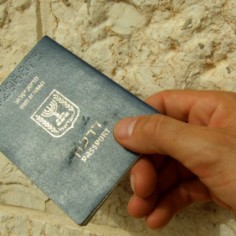
Citizenship and Residency
You have reached ACRI’s archive, updated with our activity up until 2018. For more recent posts, please visit our current website here.
A sovereign state has the authority to decide who may enter its gates and who is entitled to permanent residency, though the state must consider human rights in this decision-making process. States are obligated to respect the right to family, to provide a safe haven to refugees, asylum seekers, and stateless persons, and to respond to humanitarian crises. When it comes to citizenship and residency in Israel, however, levels of citizenship and residency status can be manipulated as a means of withholding basic state services, particularly concerning Arab citizens of Israel and those living in the territories.
ACRI seeks to ensure basic human rights to all people living within Israel and the territories by overcoming the fundamental discrepancies between who is granted citizenship, residency, or other personal status by the State. ACRI focuses acutely on the issues that especially plague those who are not recognized as full citizens, including the right to family, the right to due process, the right to work, and the right not to be forcibly hospitalized or medically treated. ACRI does this both through legal advocacy and through dissemination of information that focus on these specific issues published in English, Hebrew, and Arabic.
All
-
Criteria for Granting Residency Status to Children of Migrant Workers
September 22, 2005
ACRI and The Hotline for Migrant Workers: Change the government criteria for granting residency status to children of migrant workers … Read more

